Thoughts on Hope
Bella Musica Concert
April 26, 2025
Musica Director: Olesia Castuera
Accompanist: Rebecca Hass
for best viewing on a mobile device, double click on the text
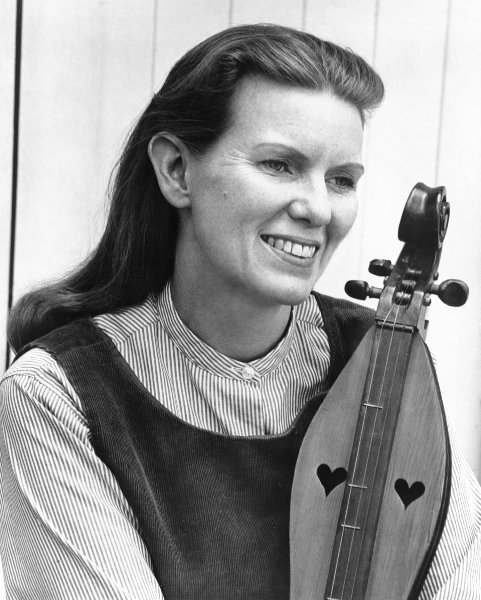 Jean Ruth Ritchie (1922 – 2015) was an American folk singer, songwriter, and Appalachian dulcimer player from Kentucky. In her youth she learned hundreds of folk songs in the traditional way (orally, from her family and community), many of which were Appalachian variants of centuries old British and Irish songs, including dozens of Child Ballads. She wanted to learn about and preserve traditional folk music so she collected and shared these songs with wide audiences, while also composing some of her own songs. She is also responsible for the revival of the Appalachian dulcimer, the traditional instrument of her community.
Jean Ruth Ritchie (1922 – 2015) was an American folk singer, songwriter, and Appalachian dulcimer player from Kentucky. In her youth she learned hundreds of folk songs in the traditional way (orally, from her family and community), many of which were Appalachian variants of centuries old British and Irish songs, including dozens of Child Ballads. She wanted to learn about and preserve traditional folk music so she collected and shared these songs with wide audiences, while also composing some of her own songs. She is also responsible for the revival of the Appalachian dulcimer, the traditional instrument of her community.
Her music influenced musicians including Bob Dylan, Joan Baez, Shirley Collins, Joni Mitchell, Emmylou Harris and Judy Collins.
The words to God Bless the Moon are a composite of two songs Jean remembers from her childhood. In combining the two songs she changed some of the lyrics — such as “cottage” to “cabin” — and set the resulting hybrid to this unassumingly elegant Mixolydian melody.
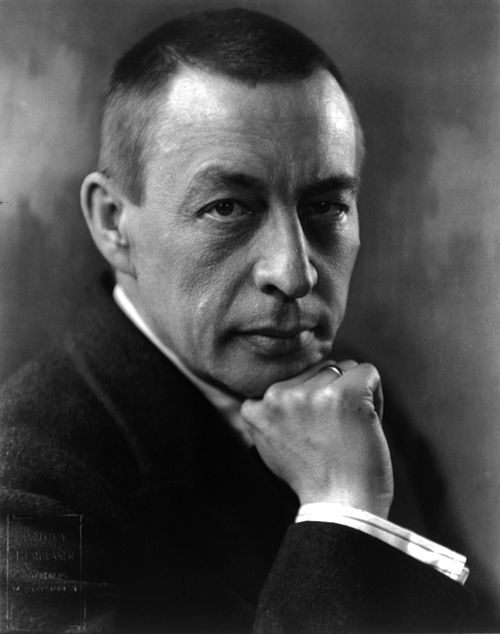 Sergei Rachmaninov (1873 – 1943) was a Russian composer, virtuoso pianist, and conductor who is widely considered one of the finest pianists of his day and, as a composer, one of the last great representatives of Romanticism in Russian classical music. Early influences of Tchaikovsky, Rimsky-Korsakov, and other Russian composers gave way to a thoroughly personal idiom notable for its song-like melodicism, expressiveness, dense contrapuntal textures, and rich orchestral colors.
Sergei Rachmaninov (1873 – 1943) was a Russian composer, virtuoso pianist, and conductor who is widely considered one of the finest pianists of his day and, as a composer, one of the last great representatives of Romanticism in Russian classical music. Early influences of Tchaikovsky, Rimsky-Korsakov, and other Russian composers gave way to a thoroughly personal idiom notable for its song-like melodicism, expressiveness, dense contrapuntal textures, and rich orchestral colors.
Born into a musical family, Rachmaninoff began learning the piano at the age of four. He studied piano and composition at the Moscow Conservatory, from which he graduated in 1892, having already written several compositions. In 1897, following the disastrous premiere of his Symphony No. 1, Rachmaninoff entered a four-year depression and composed little, until supportive therapy allowed him to complete his well-received Piano Concerto No. 2 in 1901. Rachmaninoff went on to become conductor of the Bolshoi Theatre from 1904–1906, and relocated to Dresden, Germany, in 1906. He later embarked upon his first tour of the United States as a pianist in 1909.
After the Russian Revolution, Rachmaninoff and his family left Russia permanently, settling in New York in 1918. Following this, he spent most of his time touring as a pianist in the US and Europe.
“Bogoroditsye Dyevo” is from his larger work, All Night Vigil, which he composed in less than two weeks in 1915. As required by the Russian Orthodox Church, Rachmaninoff based ten of the fifteen sections on chant. The work is a culmination of the preceding two decades of interest in Russian sacred music, which began with a similar work by Tchaikovsky.
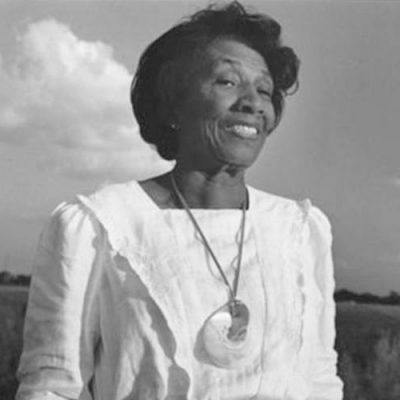 Undine Smith Moore (1904–1989) was an American composer and renowned professor of music. She first trained as a pianist, but most of her compositions were for voice. She would transcribe melodies that her mother sang, which gradually inspired her use of African-American spirituals in her music.
Undine Smith Moore (1904–1989) was an American composer and renowned professor of music. She first trained as a pianist, but most of her compositions were for voice. She would transcribe melodies that her mother sang, which gradually inspired her use of African-American spirituals in her music.
Moore acknowledged that there was “almost always strong contrapuntal influence” in her music, which began leaning towards a more dissonant counterpoint after 1953. It has been noted that Moore’s compositional style was “freely tonal… sometimes strongly modal,… almost always strongly contrapuntal, and dominated by the Black idiom.” Of her music, Smith Moore wrote that her music had, “often been concerned with aspiration, the emotional intensity associated with the life of Black people as expressed in the various rites of the church and black life in general – the …desire for abundant, full expression as one might anticipate or expect from an oppressed people determined to survive.”
Moore is also the composer of Scenes from the Life of a Martyr, a 16-part oratorio based on the life of the Reverend Dr. Martin Luther King Jr., for chorus, orchestra, solo voices and narrator. It won a Pulitzer Prize and premiered at Carnegie Hall. She considered it her most significant work.
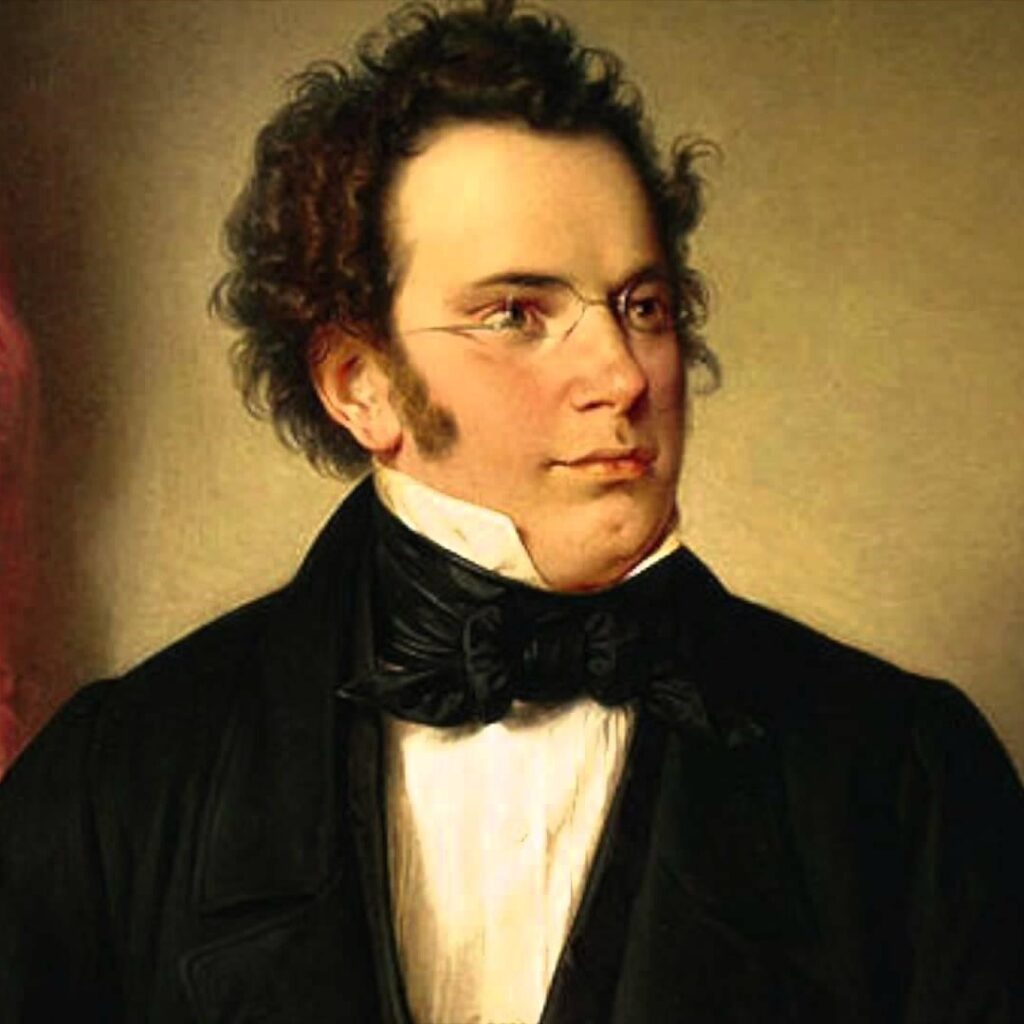 Franz Schubert (1797 – 1828) was born into a musical family in Vienna. He emerged as a brilliant and influential musician at the dawn of the Romantic era. Renowned not only as a composer but also as a skilled pianist and teacher, Schubert’s captivating melodies resonate with emotional depth and lyrical beauty. Franz Liszt hailed Schubert as “the most poetic of composers.” Beginning piano lessons at age five, by eight Schubert was playing violin and organ.
Franz Schubert (1797 – 1828) was born into a musical family in Vienna. He emerged as a brilliant and influential musician at the dawn of the Romantic era. Renowned not only as a composer but also as a skilled pianist and teacher, Schubert’s captivating melodies resonate with emotional depth and lyrical beauty. Franz Liszt hailed Schubert as “the most poetic of composers.” Beginning piano lessons at age five, by eight Schubert was playing violin and organ.
During his lifetime, Schubert taught music, composed for Viennese orchestras, and gained renown across Europe for the brilliance and beauty of his compositions. Although he died young at 31, he composed prolifically, producing over 1500 works, including songs for voice and piano, symphonies, operas, works for smaller chamber groups, oratorios and sacred music.
The 23rd Psalm riginally published in 1820, for pupils of Anna Fröhlich (1793-1880), a singing teacher at the Wiener Konservatorium. When it was first heard heard by audiences, it was instantly beloved and performed often. With a women’s chorus, the piece has an ethereal and heavenly quality to it, with harmonies indistinguishable from one another due to the their closeness. Our SATB arrangement gives the piece a sense of maturity and rootedness as the range is wide and eclectic. Follow along with the text and see how Schubert paints each line of the text with the colors of the voices and piano.
The opening lines of the piano evoke an image of rolling hills, preparing the text “God is my shepherd, I will lack nothing.” The sopranos and altos then do a little duet dance, a theme that comes around later. After declaring God’s majesty, the mood shifts as the inner voices descend chromatically, singing “Though I walk through the valley of death, I will be without fear,” creating tension and drama. Continuing on, Schubert creates a feeling of peace and assurance, ending with the same rolling piano part from the beginning.
The setting of the 23rd Psalm we sing today uses a translation from Hebrew by Moses Mendelssohn (the grandfather of Felix Mendelssohn). This accounts for the differences you may notice (in the translation) from the one you’re used to.
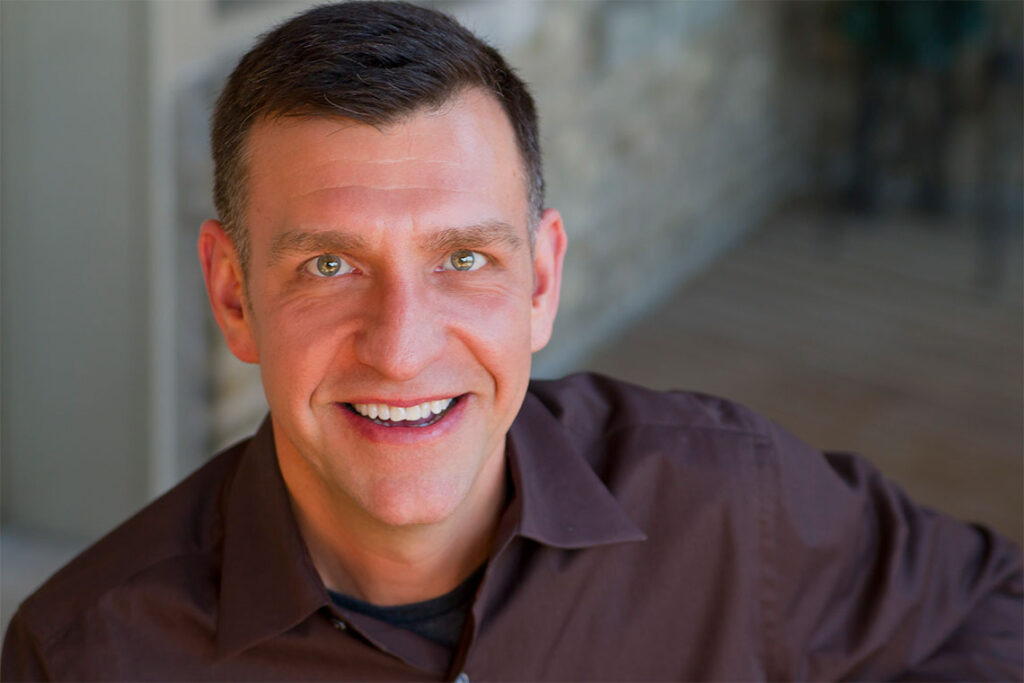 Paul Caldwell (b. 1963) and
Paul Caldwell (b. 1963) and 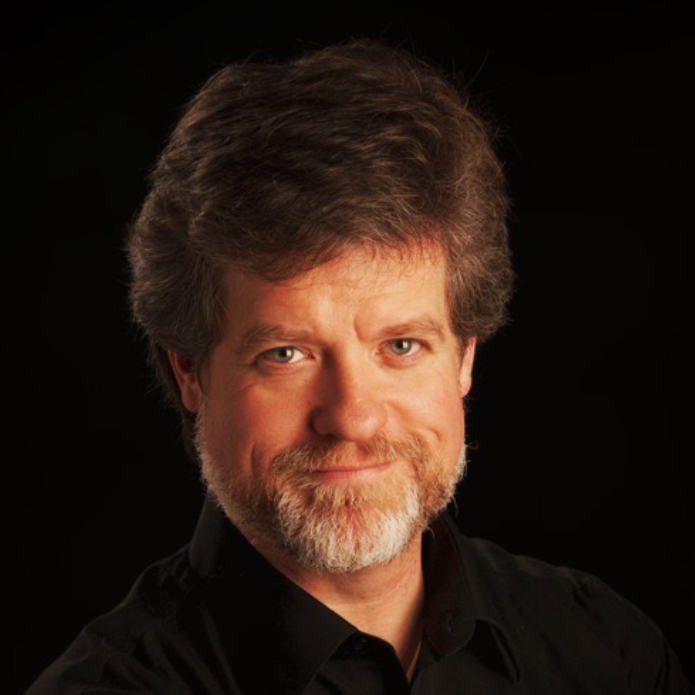 Sean Ivory (b. 1969) began arranging music together spontaneously in the early 1990s when they were both working with a community-based youth choir in Grand Rapids, Michigan. Ain’t No Grave Can Hold This Body Down is adapted from a traditional American gospel song attributed to Claude Ely, written in the 1930s. It expresses themes of resurrection and hope. The original song has been covered by various artists, including Johnny Cash and Odetta. The arrangement we sing today is Caldwell and Ivory’s arrangement, a rhythmic and bold song of defiance.
Sean Ivory (b. 1969) began arranging music together spontaneously in the early 1990s when they were both working with a community-based youth choir in Grand Rapids, Michigan. Ain’t No Grave Can Hold This Body Down is adapted from a traditional American gospel song attributed to Claude Ely, written in the 1930s. It expresses themes of resurrection and hope. The original song has been covered by various artists, including Johnny Cash and Odetta. The arrangement we sing today is Caldwell and Ivory’s arrangement, a rhythmic and bold song of defiance.
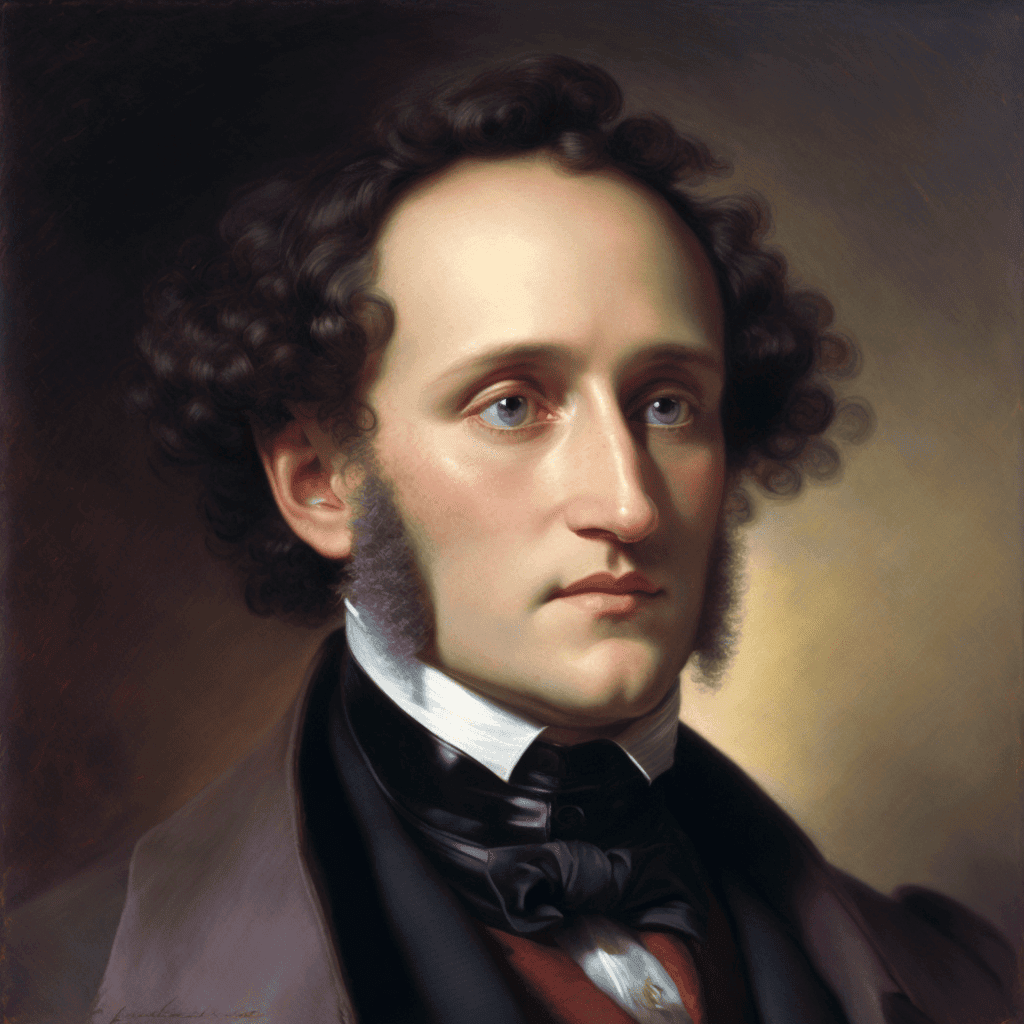 Felix Mendelssohn-Bartholdy (1809 – 1847) Mendelssohn was born into a prosperous middle-class family that played host to many distinguished guests. By the time he was 12, he had already produced four operas, 12 string symphonies, and a large quantity of chamber and piano music. After completing his studies at the University of Berlin, Mendelssohn traveled and performed throughout Europe. He enjoyed great fame in Victorian England, causing Prince Albert to dub him “The Second Elijah.” Some of his most recognizable works are the classic “Wedding March” from his work A Midsummer’s Night Dream and the melody from Hark! The Herald Angels Sing as well as his Songs Without Words.
Felix Mendelssohn-Bartholdy (1809 – 1847) Mendelssohn was born into a prosperous middle-class family that played host to many distinguished guests. By the time he was 12, he had already produced four operas, 12 string symphonies, and a large quantity of chamber and piano music. After completing his studies at the University of Berlin, Mendelssohn traveled and performed throughout Europe. He enjoyed great fame in Victorian England, causing Prince Albert to dub him “The Second Elijah.” Some of his most recognizable works are the classic “Wedding March” from his work A Midsummer’s Night Dream and the melody from Hark! The Herald Angels Sing as well as his Songs Without Words.
Mendelssohn loved the choral works of Bach and Handel. He famously presented J. S. Bach’s St. Matthew Passion at the Leipzig Gewandhaus when he was 20, thereby rescuing the work of the great master from obscurity.
The Old Testament story resonated deeply with Mendelssohn. The life of the prophet Elijah epitomized the evolution of Jewish faith from worship of the Babylonian pantheon of idols and myths to worshiping one monotheistic God. He saw the drama in the story as perfect for musical storytelling.
Mendelssohn’s oratorio Elijah (from which “Lift Thine Eyes” is taken) tells of several key incidents in the life of the 9th century BC prophet. Elijah is accused of causing Israel’s troubles. He responds that the people have brought their problems upon themselves by worshipping false gods. In a disastrous meeting with Queen Jezebel, she accuses Elijah of treachery against the people of Israel and of trying to usurp King Ahab’s power. Elijah flees to the wilderness where an unaccompanied chorus of women portrays angels comforting the prophet in “Lift thine eyes.” His spirit and strength are restored by the appearance of God, and he ascends into heaven.
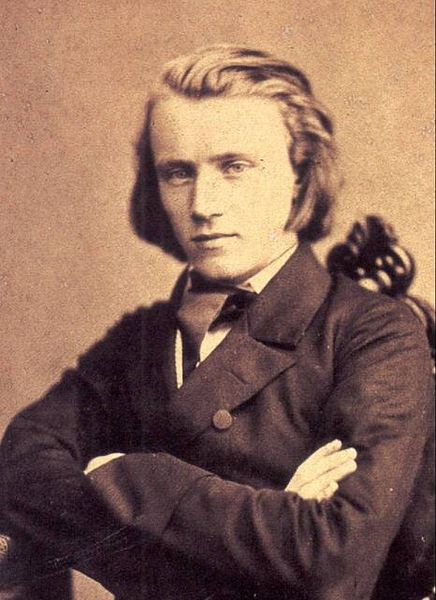 Johannes Brahms (1833 – 1897) was a German composer, pianist, and conductor of the Romantic era. He is considered one of the greatest composers of the 19th century, and his music is still performed and enjoyed by audiences all over the world.
Johannes Brahms (1833 – 1897) was a German composer, pianist, and conductor of the Romantic era. He is considered one of the greatest composers of the 19th century, and his music is still performed and enjoyed by audiences all over the world.
Brahms’s early compositions were influenced by the music of Beethoven and Schubert. However, he soon developed his own unique style, which was characterized by its clarity, balance, and emotional depth. Brahms was a master of melody, harmony, and rhythm, and his music is often described as being “classical” or “romantic.”
“Der Abend” sets Schiller’s text of classical allusions to the sun-God Apollo and Thetis, the water or sea Goddess. Brahms changes style in the middle section, depicting Thetis, offering far more homophonic textures for the choir and lyrical arpeggios in the piano.
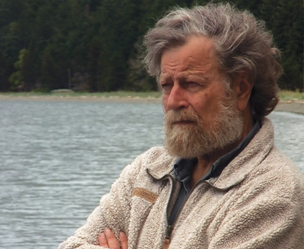 Morten Johannes Lauridsen III (b. 1943) is an American composer and teacher. He was composer-in-residence of the Los Angeles Master Chorale from 1994 to 2001, and is professor emeritus of composition at the USC Thornton School of Music, where he taught for fifty-two years until his retirement in 2019.
Morten Johannes Lauridsen III (b. 1943) is an American composer and teacher. He was composer-in-residence of the Los Angeles Master Chorale from 1994 to 2001, and is professor emeritus of composition at the USC Thornton School of Music, where he taught for fifty-two years until his retirement in 2019.
A native of the Pacific Northwest, Lauridsen worked as a Forest Service firefighter and lookout on an isolated tower near Mount St. Helens. He attended Whitman College for 2 years, before traveling south to study composition at the University of Southern California, where he began teaching in 1967.
In 2006, Lauridsen was named an “American Choral Master” by the National Endowment for the Arts. In 2007, he received the National Medal of Arts from the president, “for his composition of radiant choral works combining musical beauty, power and spiritual depth….”
The two pieces on our program are part of a longer work, Les Chansons des Roses, a setting of poems by Rainer Maria Rilke. Deftly crafted and elegant in their imagery, these pieces enhance the characteristics of the poems and capture their delicate beauty and sensuousness, and are so intimate as to suggest an introspective self-communing.
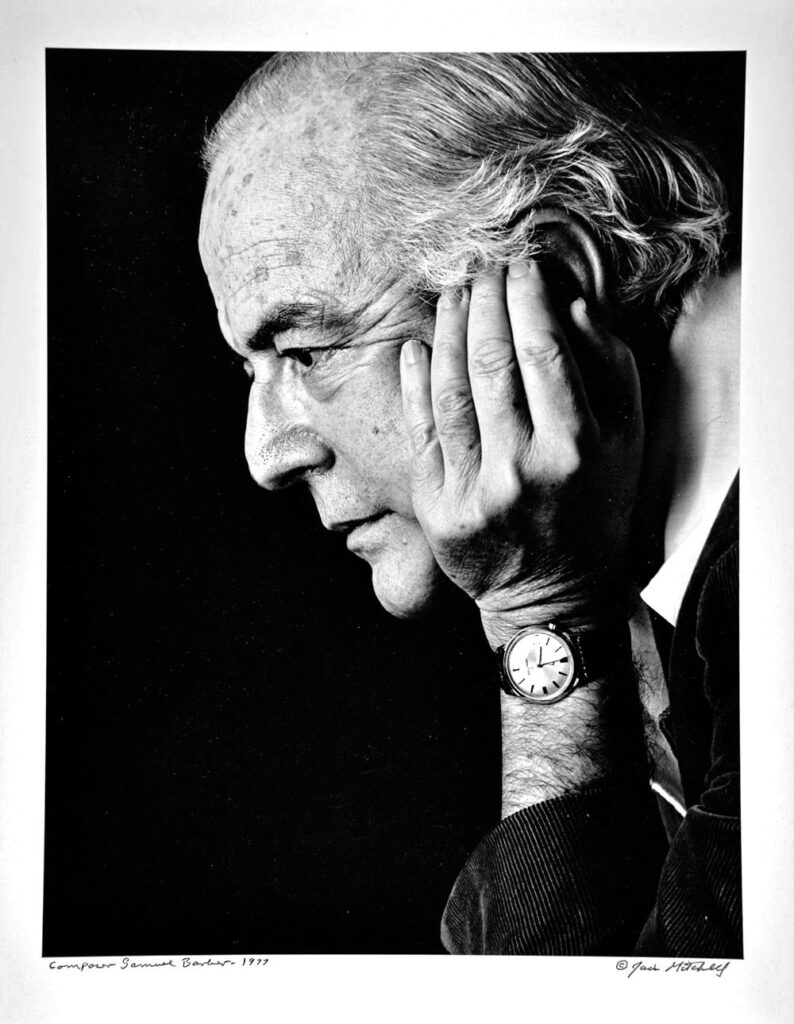 Samuel Barber (1910 – 1981) was an American composer, pianist, conductor, baritone, and music educator. One of the most celebrated composers of the mid-20th century, Barber preferred traditional 19th-century harmonic language and formal structure embracing lyricism and emotional expression over the experimental trends of musical modernism. After 1940 he began to use some modern elements, including dissonance, chromaticism and tonal ambiguity.
Samuel Barber (1910 – 1981) was an American composer, pianist, conductor, baritone, and music educator. One of the most celebrated composers of the mid-20th century, Barber preferred traditional 19th-century harmonic language and formal structure embracing lyricism and emotional expression over the experimental trends of musical modernism. After 1940 he began to use some modern elements, including dissonance, chromaticism and tonal ambiguity.
Barber’s works became successful on the international stage and many of his compositions enjoyed rapid adoption into the classical performance canon. His “Adagio for Strings” is perhaps the most well-known today. Barber twice received the Pulitzer Prize for Music: for his opera Vanessa, and for Concerto for Piano and Orchestra.
While Barber composed a significant body of instrumental music, a majority of his work was art songs for voice and piano, choral music, and songs for voice and orchestra. “Sure on this Shining Night” is from his 1938 song cycle Four Songs. One of his most frequently performed works, it displays Barber’s Neo-Romantic lyricism with a classically oriented formal structure and carefully crafted interplay between solo voice and piano.
Notice the pulsating chords, the constant staggered entrances and mixed meter, one section melds into another, thought after thought, like a stream of consciousness. The climax of the piece is early on, one of the only spots where we almost hear clear homophony, with the text “All is healed, all is health.” Sometimes dark and ominous, other times gleaming with gratitude, the melodies are evidence of Barber’s mastery of song.
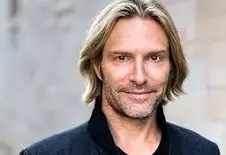 Eric Whitacre (b.1970) became wildly popular in the choral world when he first created a Virtual Choir long before it became a necessity during the pandemic. In 2010, he was inspired when a high school student uploaded a YouTube video of herself singing Lux Aurumque. He invited anyone online to submit and created a virtual choir of 185 people from 12 different countries.
Eric Whitacre (b.1970) became wildly popular in the choral world when he first created a Virtual Choir long before it became a necessity during the pandemic. In 2010, he was inspired when a high school student uploaded a YouTube video of herself singing Lux Aurumque. He invited anyone online to submit and created a virtual choir of 185 people from 12 different countries.
As a response to the 2020 pandemic, Whitacre wrote this piece and assembled a virtual choir of 17,000 voices to sing it. As a small offering of comfort and peace, the piece invites us to be kind, compassionate and gentle with one another.
Whitacre is an American composer mostly known for his choral works, though he has also composed for instrumental ensembles, theatre and film. He earned a master’s degree in Composition at the Juilliard School.
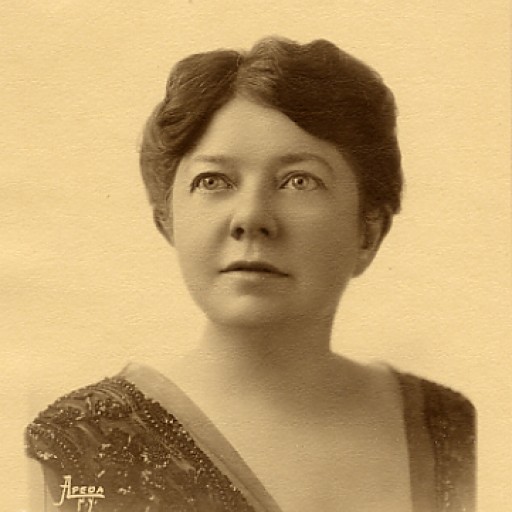 Amy Beach (1867 – 1944) was an American composer and pianist, and the first successful American female composer of large-scale art music. Her “Gaelic” Symphony, premiered by the Boston Symphony Orchestra in 1896, was the first symphony composed and published by an American woman. She was one of the first American composers to succeed without the benefit of European training, and one of the most respected and acclaimed American composers of her era.
Amy Beach (1867 – 1944) was an American composer and pianist, and the first successful American female composer of large-scale art music. Her “Gaelic” Symphony, premiered by the Boston Symphony Orchestra in 1896, was the first symphony composed and published by an American woman. She was one of the first American composers to succeed without the benefit of European training, and one of the most respected and acclaimed American composers of her era.
A musical prodigy from her earliest days, Beach began composing at age four, began formal piano lessons with her mother at age six, and soon gave public recitals of works by Handel, Beethoven, and Chopin, as well as her own pieces. She read widely on theory, composition, and orchestration, and taught herself counterpoint, harmony, and fugue.
She married at 18, and although she considered herself happy, she was required to restrict her musical education, public performances, and teaching duties in favor of playing the society wife and not overshadowing her husband. Such restrictions were typical for middle- and upper-class women of the time. Her husband died in 1910, and from there her musical career took off.
Beach composed symphonies, choral works, chamber music, pieces for string ensembles, songs, and sacred music; she performed widely in Europe and the United States, to great acclaim, including her own compositions.
She used her status as the top female American composer to further the careers of young musicians.While she had agreed not to give private music lessons while married, Beach was able to work as a music educator during the early 20th century. She served as President of the Board of Councillors of the New England Conservatory of Music.
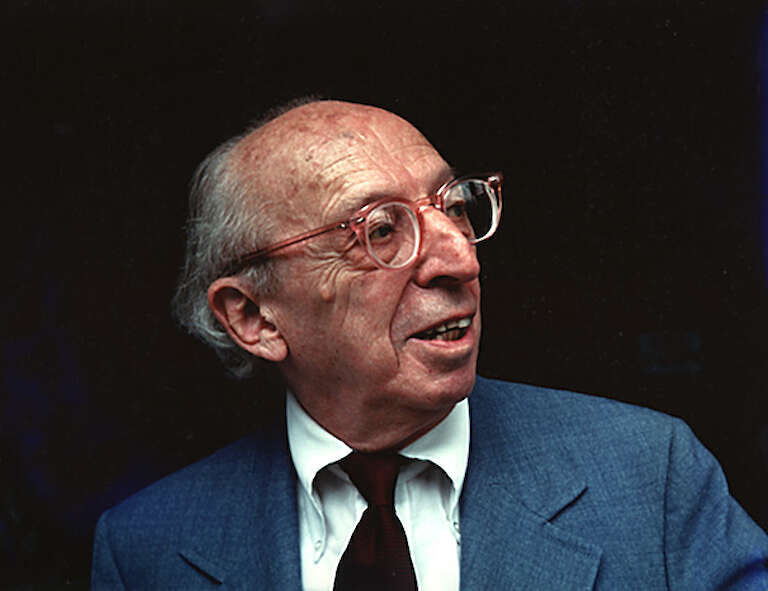 Aaron Copeland (1900 – 1990) Brooklyn-born to Russian-Lithuanian immigrants, Copeland learned piano from an older sister, and worked hard in his parents’ department store, downstairs from their apartment. He was composing before he became a teenager, and in his 20’s studied in France, most especially with Nadia Boulanger. He was her first American student who shaped much of 20th century music.
Aaron Copeland (1900 – 1990) Brooklyn-born to Russian-Lithuanian immigrants, Copeland learned piano from an older sister, and worked hard in his parents’ department store, downstairs from their apartment. He was composing before he became a teenager, and in his 20’s studied in France, most especially with Nadia Boulanger. He was her first American student who shaped much of 20th century music.
While he was initially much taken with the avant-garde, his 1930’s work gravitated toward a simpler model. The open, slowly changing harmonies in much of his music are typical of what many consider the sound of American music, evoking the vast American landscape and pioneer spirit. Some of his most famous works are Appalachian Spring, Billy the Kid, Rodeo, and Fanfare for the Common Man
The Tender Land, from which “The Promise of Living” is taken, was a commission for a TV network, back when both CBS and NBC had their own in-house orchestras and this kind of commission was common. It tells the story of a farm family—a single mother, her father, and two children and explores what it means to be an American. In the opera, Copland appeals to Midwesterners, Californians, New Yorkers—all of us—with a modest, lyrical tale of Americana. “The Promise of Living,” the opera’s soaring finale, evokes the dignity and meaningfulness of labor: honest work, in this case cultivating the soil of the American heartland and reaping the blessings of a rich harvest, as part of a balanced and fulfilled life.
Translations
Der 23. Psalm
[German]
Gott ist mein Hirt, mir wird nichts mangeln.
Er lagert mich auf grüne Weide,
er leitet mich an stillen Bächen,
er labt mein schmachtendes Gemüt,
er führt mich auf gerechtem Steige
zu seines Namens Ruhm.
Und wall’ ich auch im Todesschatten Tale,
so wall’ ich ohne Furcht.
Denn du beschützest mich.
Dein Stab und deine Stütze
sind mir immerdar mein Trost.
Du richtest mir ein Freudenmahl
im Angesicht der Feinde zu,
du salbst mein Haus mit Öle,
und schenkst mir volle, volle Becher ein.
Mir folget Heil und Seligkeit in diesem Leben nach,
einst ruh’ ich ew’ge Zeit in des Ew’gen Haus.
tr. Moses Mendelssohn, 1788
[English]
God is my shepherd. I will lack nothing.
He lets me lie in green pastures;
he leads me by still streams;
he refreshes my thirsting spirit;
he leads me on righteous paths
for the sake of his good name.
And though I walk in the valley of the shadow of death,
I walk without fear,
for you protect me.
Your staff and your support
are always my comfort.
You prepare a banquet for me
in the face of my enemies;
you anoint my head with oil
and pour me a full, full cup.
Well being and happiness follow me in this life;
one day I will rest eternally in the house of the Eternal One.
tr. Steve Wedgwood.
Der Abend
[German]
Senke, strahlender Gott, die Fluren dürsten
Nach erquickendem Tau, der Mensch verschmachtet,
Mater ziehen die Rosse,
Senke den Wagen hinab!
Siehe, wer aus des Meers kristallner Woge
Lieblich lächelnd dir winkt! Erkennt dein Herz sie?
Rascher fliegen die Rosse.
Thetys, die göttliche, winkt.
Schnell vom Wagen herab in ihre Arme
Springt der Führer, den Zaum ergreift Cupid,
Stille halten die Rosse,
Trinken die kühlende Flut.
An dem Himmel herauf mit leisen Schritten
Kommt die duftende Nacht; ihr folgt die süße
Liebe. Ruhet und liebet!
Phöbus, der Liebende, ruht.
—Friedrich Schiller
[English]
Evening
Come down, radiant god, the fields are thirsting
for life-giving dew. The people are parched.
The horses pulling are weary.
Bring your chariot down!
See who calls you from ocean’s crystal waves
with loving smile! Does your heart know her?
Faster the horses fly.
Thetis, the divine one, calls.
Quickly down from the chariot and into her arms
springs the driver. Cupid seizes the reins.
The horses stand still,
drink from the cooling flood.
In the heavens above, with quiet steps, come
the fragrant night. She is followed by sweet
love. Rest now and love!
Phoebus the lover rests.
tr. Steve Wedgwood
En Une Seule Fleur
[French]
C’est pourtant nous qui t’avons proposé
de remplir ton calice.
Enchanté de cet artifice,
ton abondance l’avait osé.
Tu étais assez riche, pour devenir
cent fois toi-même en une seule fleur;
c’est l’état de celui qui aime . . .
Mais tu n’a pas pensé ailleurs.
—R.M. Rilke
[English]
But it is we who proposed to you
to fill up your cup.
Charmed with this device,
your abundance dared it.
You were rich enough to become yourself
a hundred times over in a single flower;
that’s the condition of one who loves . . .
But you knew that all along!
tr. Steve Wedgwood
Dirait-on
[French]
Abandon entouré d/abandon
tendresse touchant aux tendresses . . .
C’est ton intérieur qui danse cesse
se caresse, dirait-on;
se caresse en soi-même,
par son propre reflet éclairée.
Ainsi tu inventes le thème
du Narcisse exaucé.
—R.M. Rilke
[English]
Abandon surrounding abandon,
tenderness touching tenderness . . .
your oneness endlessly
caresses itself, so they say.
Self-caressing
through its own clear reflection
Thus you invent the theme
of Narcissus fulfilled.
tr. Steve Wedgwood
Bogoróditse Dyévo
